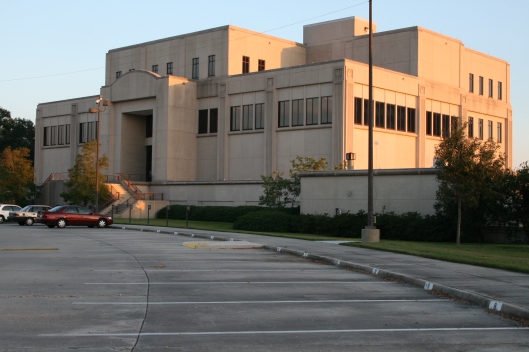Ordinarily, claims for additional taxes or for a refund of taxes paid prescribe within 3 years from the year in which the taxes were due. It is not uncommon, however, for tax collectors and taxpayers to agree, during the course of an audit, to suspend the running of prescription as to potential claims by both parties in order to give them additional time within which to resolve their differences. In a matter handled by our State and Local Tax (SALT) group, the Louisiana Board of Tax Appeals was called upon to review an agreement to suspend prescription and has now rendered a decision which may be of benefit to any taxpayer currently litigating its tax liability.
The taxpayer was audited for corporate income taxes for numerous years. During the audit, the parties executed several of the Department’s stock agreement to suspend the running of prescription. The first agreement was executed in the year the first audit period would have prescribed. Subsequent agreements would include the years included in the prior agreements and any year about to prescribe.
Under the terms of the agreement prescription was suspended as to the claims of both parties until December 31 of the year after the year of execution. The last agreement extended the period of suspension until December 31, 2008. In December of 2008, the Department filed suit against the taxpayer for additional taxes.
While preparing for trial, the taxpayer discovered that its gain on the sale of an asset had been overstated. Under Louisiana law this overpayment could not be raised as a defense in the Department’s suit against the taxpayer. Rather, the only way the overpayment could be recovered was by filing a refund claim. After the trial court’s decision (which abated the assessment) but before it became final, the taxpayer filed its claim with the Department.
The Department failed to act on the claim within a year of its filing, so the taxpayer filed suit at the BTA asking that the Department be ordered to refund the amount claimed. The Department filed an exception of prescription. It was the Department’s position that, under the terms of the agreement, the taxpayer’s claim had to be filed no later than December 31st of 2008. Since the claim wasn’t filed until 2012 it was, according to the Department, untimely. The BTA disagreed.
Ordinarily, the filing of suit by the Department against a taxpayer does not extend the time within which a claim for refund must be filed., The BTA found, however, that under the agreement, the taxpayer agreed to never plead prescription if suit was filed prior to December 31, 2008 and the Department agreed that the period of prescription for claiming a refund was “extended in accordance with the terms of the agreement.” The BTA ruled that what was good for the goose was good for the gander and since the filing of the Department’s suit had interrupted prescription as to its right to seek additional taxes, so too did it interrupt prescription as to the taxpayer’s refund claim.
One can expect the Department to try and effectively overrule this decision by rewriting the agreement to make it more one sided in the goose’s favor. Until then, a taxpayer who is defending a suit filed by a tax collector may have an unexpected opportunity for a refund.
If you have questions please contact one of our attorneys in the Breazeale, Sachse & Wilson, L.L.P. state and local tax controversy team.

 The purchasers of flex fuel vehicles receive a Christmas gift from the
The purchasers of flex fuel vehicles receive a Christmas gift from the 


 But where something is taken away, something is given. The credit currently permits “mounting systems” as part of eligible costs for the solar energy system credit. The regulation revision will specifically allow costs for a free-standing, ground-mounted solar energy system, which is a separate structure from the residence. The revision permits costs for the structure and its foundation that are necessary to mount the solar energy system to the specified height. The allowed structure costs do not include additional walls, interior finishes, foundations, roofing structures not directly related to the solar energy system, or any other any other addition not directly related to the solar energy system. If you’re thinking of gazebos, car/boat ports, and the like, then you see the added benefit to the revision. The LDR will hold a hearng on the proposed changes on September 27, 2012, and if there are no objections or changes, the revisions will eventually take effect.
But where something is taken away, something is given. The credit currently permits “mounting systems” as part of eligible costs for the solar energy system credit. The regulation revision will specifically allow costs for a free-standing, ground-mounted solar energy system, which is a separate structure from the residence. The revision permits costs for the structure and its foundation that are necessary to mount the solar energy system to the specified height. The allowed structure costs do not include additional walls, interior finishes, foundations, roofing structures not directly related to the solar energy system, or any other any other addition not directly related to the solar energy system. If you’re thinking of gazebos, car/boat ports, and the like, then you see the added benefit to the revision. The LDR will hold a hearng on the proposed changes on September 27, 2012, and if there are no objections or changes, the revisions will eventually take effect.

